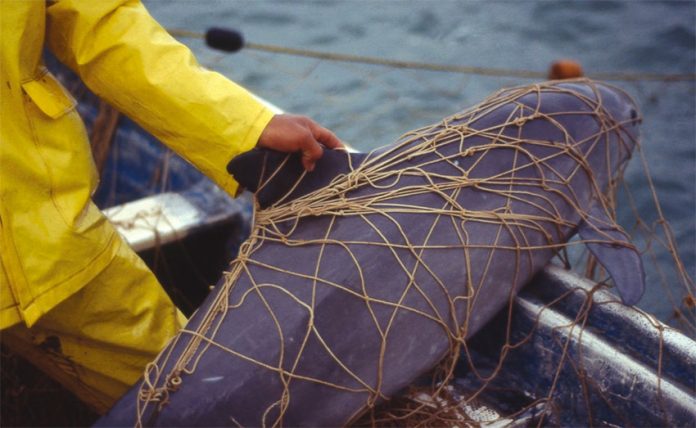The federal government said Saturday it is considering reducing the area in the upper Gulf of California where the critically endangered vaquita marina porpoise is protected.
The measure would reduce the area where there is a ban on the use of gillnets, in which the world’s smallest porpoises are prone to becoming entangled and dying.
But there are fears that allowing the nets to be used across a larger area of the gulf would increase the risk of the species going extinct. There are currently as few as 10 vaquitas in the Gulf of California, the only place in the world they live.
The Environment Ministry (Semarnat) said that a decrease in the number of vaquitas and the area where they have been seen in recent years provides justification for reducing the size of the protected area.
The area extends from the Colorado River delta in the north of the Gulf past the fishing town of San Felipe on the west coast and near Puerto Peñasco on the east coast.
“The possibility of modifying the area of gillnet bans is being studied,” Semarnat said in a statement.
“There have been enough technical studies to indicate a possible reduction in the zone, according to the recent distribution of the vaquita marina in the area.”
The ministry said the possibility would be discussed by a group that includes fishermen, academics, members of the general public and government officials. A first report on the outcome of the discussions will be presented on March 26, Semarnat said.
Many fishermen have vehemently opposed the gillnet ban because they use the nets to catch totoaba, another endangered species whose swim bladders are considered a delicacy in China and yield thousands of dollars per kilogram. Mexican drug cartels are said to be involved in the illegal fishing and trafficking of totoaba, a large member of the sciaenidae, or drum, family of fish.
Fishermen have staged protests against the gillnet ban and attacked vessels operated by Sea Shepherd, a marine conservation group that removes nets in the protected area. Fishermen have also clashed with the navy, which carries out patrols against illegal fishing in the Gulf of California.
Alex Olivera, Mexico representative for the Center for Biological Diversity, said that reducing the size of the protected area would inevitably increase the likelihood of the small remaining population of vaquitas encountering a gillnet.
“Reducing the zone … means cutting the area available to the vaquita marina, and of course this species doesn’t live in a pen, it lives in the marine environment, so as soon as it leaves the zone, it could face gillnets, which are a threat,” he said.
Source: AP (sp)
